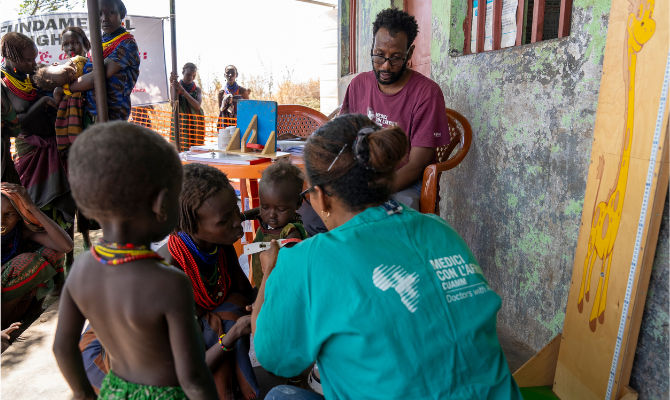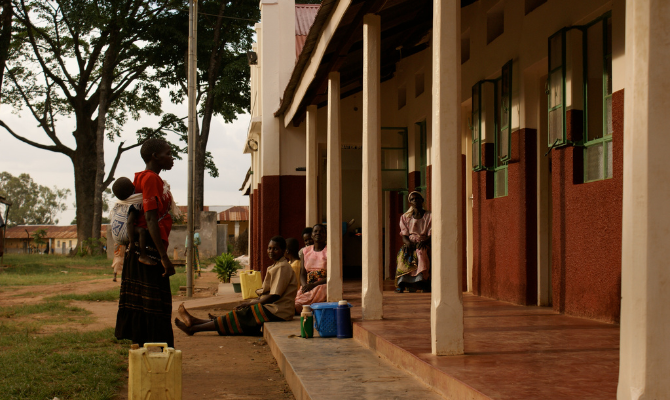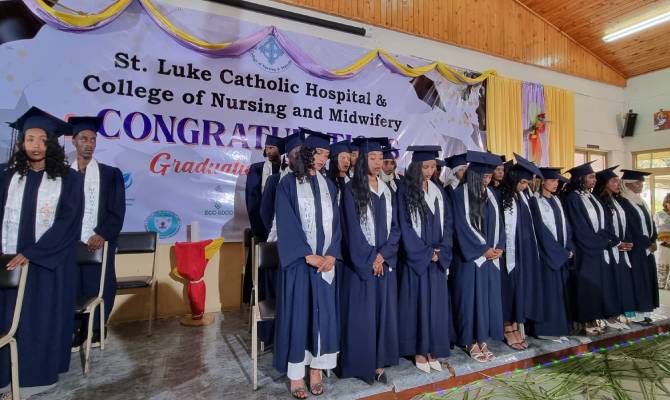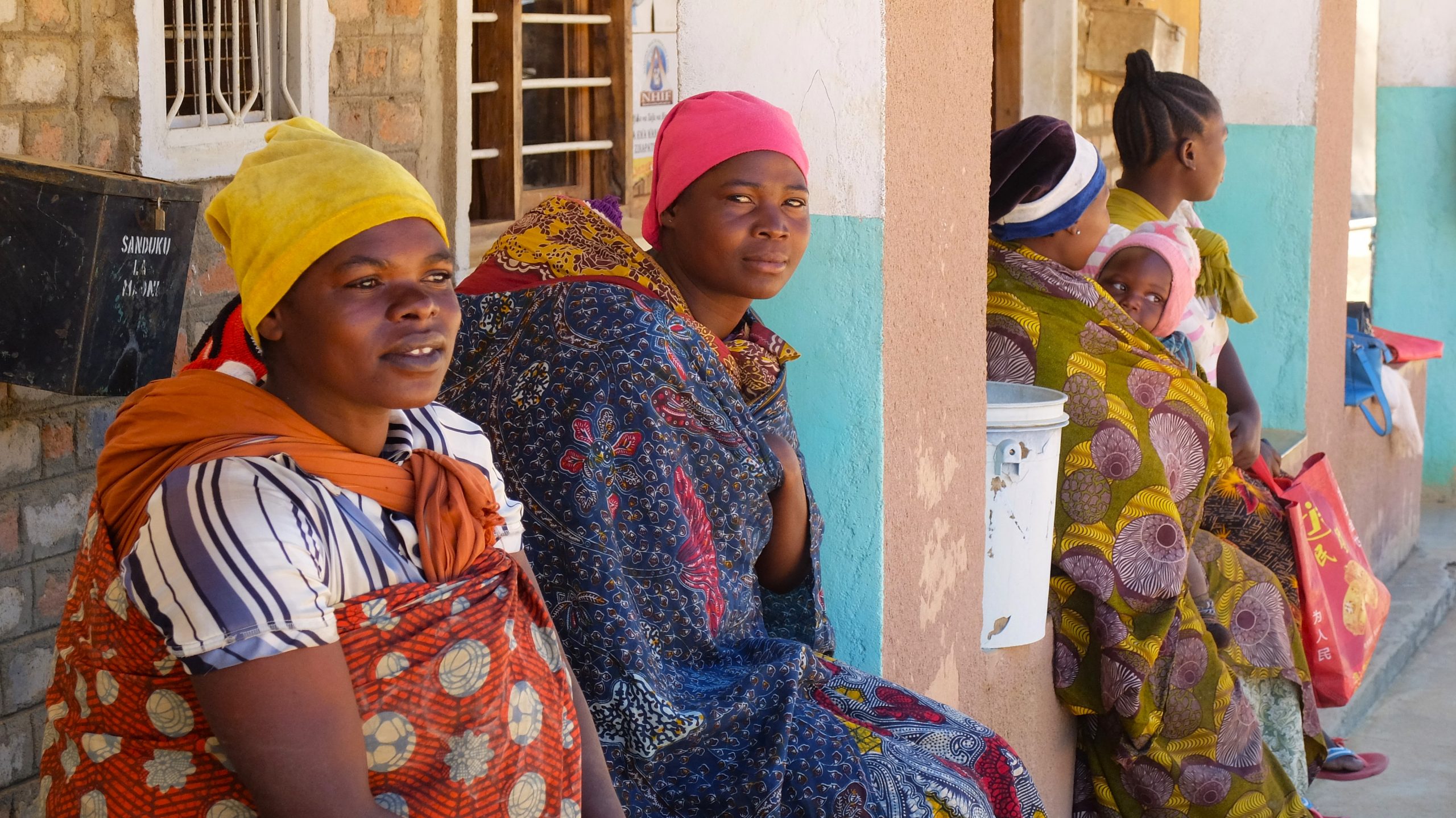There are over 60,000 internally displaced persons (IDPs) in the South Omo Zone in Ethiopia, particularly in the Woreda of Dassenech where Doctors with Africa CUAMM, in collaboration with CST, is implementing the project “Reach Out – Humanitarian response with lifesaving services and protection for the Dassenech Communities affected by drought in South Omo,” funded by the Italian Agency for Development Cooperation.
The area, predominantly inhabited by semi-nomadic pastoral communities, has been severely affected by climate change in recent years: periods of drought alternate with severe floods, like the one a few days ago when the Omo River and Lake Turkana overflowed, covering 65% of the Dassenech district with water.
As a result, food insecurity and malnutrition are increasing (according to data from the Woreda Health Office, in recent months alone, a Global Acute Malnutrition (GAM) rate of 36.4% was recorded), as is the risk of the spread of diseases, especially those caused by contaminated water. Health services are becoming increasingly inaccessible due to the difficulty of movement and damage to infrastructure. It is within this context that the CUAMM team continues, as much as possible, to provide support and medical care to communities through mobile health clinics (MHNTs), particularly in various areas of the Woreda.
“At this moment, we are able to provide medical assistance at the Marmarte IDP camp, but due to the extreme climatic conditions, we are having great difficulty reaching the more isolated kebeles,” says Ephrem Berhanu, CUAMM project manager in South Omo. “In the Dassenech area, environmental factors are facilitating the spread of epidemics such as malaria and measles. The number of patients needing care is increasing in an already fragile context, where now providing essential medical services, including nutritional screening, is becoming a challenge.”
Since April 2023, when the intervention began, 26,339 people have been reached through the activities of mobile clinics and supported health centers, providing maternal and child health and nutritional services, along with protection services for victims of gender-based violence and the multi-purpose cash transfer, a financial support system for families with at least one child suffering from severe acute malnutrition. The intervention has also ensured the supply of basic equipment, medicines, and reagents to prevent stock depletion. Following an increase in malaria cases from December 2023 and insufficient availability of medicines to cope with it, the CUAMM team, in collaboration with WHO, managed to have 46 anti-malaria kits sent for distribution to 5 health centers in the district. Additionally, the skills and capacities of health personnel have been strengthened through on-the-job training, particularly for the management of malnutrition cases, and support has been ensured for the ambulance referral system and emergency management, especially obstetric and neonatal emergencies. Since the start of the project, 1,043 patients have been transferred from covered health centers to higher-level health facilities, such as Jinka General Hospital and Turmi Hospital; 470 children have been hospitalized for severe acute malnutrition in health facilities.
Finally, community awareness activities have been implemented, thanks to community health workers and the active involvement of some community members to sensitize others. 4,557 people have been reached, promoting health education and messages on various topics: malaria prevention and treatment, good nutritional and hygienic practices, including the distribution of dignity kits, tuberculosis prevention, and awareness for combating gender-based violence.
A humanitarian and environmental crisis that is worsening, the number of internally displaced persons is increasing, but the commitment continues alongside local communities and the most vulnerable, women and children, despite all these complexities and challenges.





